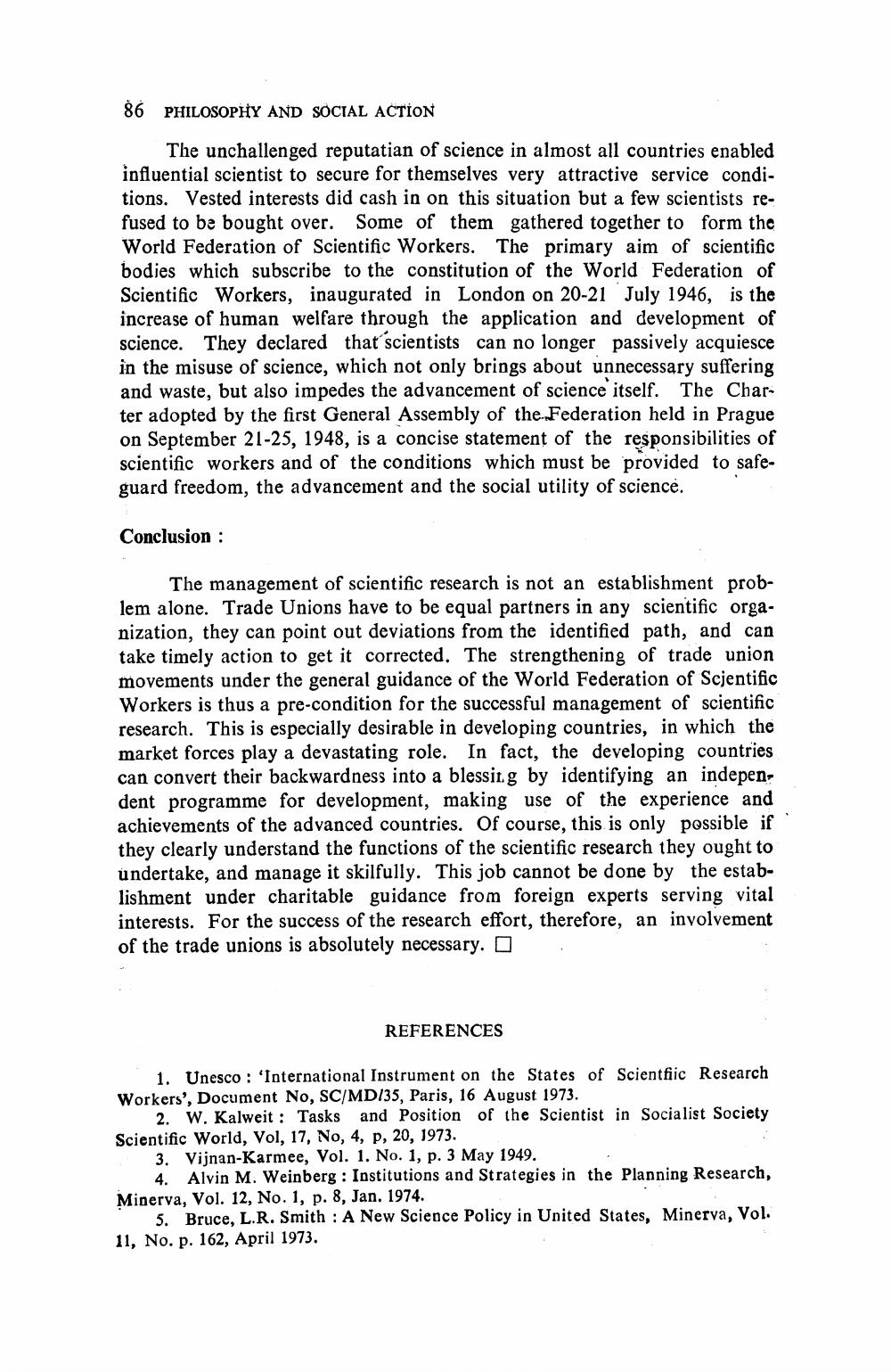________________
86 PHILOSOPHY AND SOCIAL ACTION
The unchallenged reputatian of science in almost all countries enabled influential scientist to secure for themselves very attractive service conditions. Vested interests did cash in on this situation but a few scientists refused to be bought over. Some of them gathered together to form the World Federation of Scientific Workers. The primary aim of scientific bodies which subscribe to the constitution of the World Federation of Scientific Workers, inaugurated in London on 20-21 July 1946, is the increase of human welfare through the application and development of science. They declared that scientists can no longer passively acquiesce in the misuse of science, which not only brings about unnecessary suffering and waste, but also impedes the advancement of science itself. The Charter adopted by the first General Assembly of the Federation held in Prague on September 21-25, 1948, is a concise statement of the responsibilities of scientific workers and of the conditions which must be provided to safeguard freedom, the advancement and the social utility of science.
Conclusion:
The management of scientific research is not an establishment problem alone. Trade Unions have to be equal partners in any scientific organization, they can point out deviations from the identified path, and can take timely action to get it corrected. The strengthening of trade union movements under the general guidance of the World Federation of Scientific Workers is thus a pre-condition for the successful management of scientific research. This is especially desirable in developing countries, in which the market forces play a devastating role. In fact, the developing countries can convert their backwardness into a blessing by identifying an indepen dent programme for development, making use of the experience and achievements of the advanced countries. Of course, this is only possible if they clearly understand the functions of the scientific research they ought to undertake, and manage it skilfully. This job cannot be done by the establishment under charitable guidance from foreign experts serving vital interests. For the success of the research effort, therefore, an involvement of the trade unions is absolutely necessary.
REFERENCES
1. Unesco 'International Instrument on the States of Scientfiic Research. Workers', Document No, SC/MD/35, Paris, 16 August 1973.
2. W. Kalweit: Tasks and Position of the Scientist in Socialist Society Scientific World, Vol, 17, No, 4, p, 20, 1973.
3. Vijnan-Karmee, Vol. 1. No. 1, p. 3 May 1949.
4. Alvin M. Weinberg: Institutions and Strategies in the Planning Research, Minerva, Vol. 12, No. 1, p. 8, Jan. 1974.
5. Bruce, L.R. Smith: A New Science Policy in United States, Minerva, Vol. 11, No. p. 162, April 1973.




